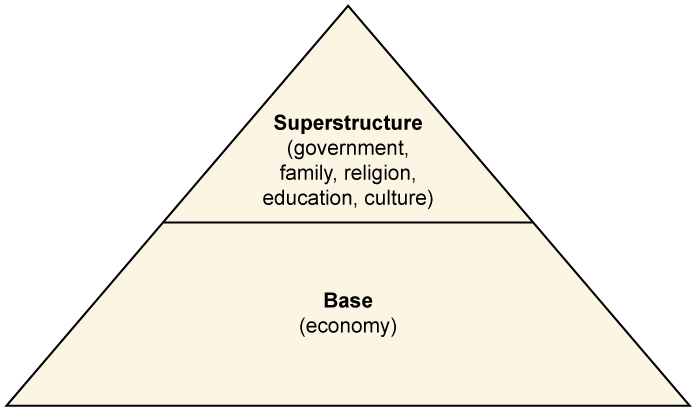| << Chapter < Page | Chapter >> Page > |
Preindustrial societies, Durkheim explained, were held together by mechanical solidarity , a type of social order maintained by the collective consciousness of a culture. Societies with mechanical solidarity act in a mechanical fashion; things are done mostly because they have always been done that way. This type of thinking was common in preindustrial societies where strong bonds of kinship and a low division of labor created shared morals and values among people, such as hunter-gatherer groups. When people tend to do the same type of work, Durkheim argued, they tend to think and act alike.
In industrial societies, mechanical solidarity is replaced with organic solidarity , which is social order based around an acceptance of economic and social differences. In capitalist societies, Durkheim wrote, division of labor becomes so specialized that everyone is doing different things. Instead of punishing members of a society for failure to assimilate to common values, organic solidarity allows people with differing values to coexist. Laws exist as formalized morals and are based on restitution rather than revenge.
While the transition from mechanical to organic solidarity is, in the long run, advantageous for a society, Durkheim noted that it can be a time of chaos and “normlessness.” One of the outcomes of the transition is something he called social anomie . Anomie—literally, “without law”—is a situation in which society no longer has the support of a firm collective consciousness. Collective norms are weakened. People, while more interdependent to accomplish complex tasks, are also alienated from each other. Anomie is experienced in times of social uncertainty, such as war or a great upturn or downturn in the economy. As societies reach an advanced stage of organic solidarity, they avoid anomie by redeveloping a set of shared norms. According to Durkheim, once a society achieves organic solidarity, it has finished its development.
Karl Marx (1818–1883) is certainly among the most significant social thinkers in recent history. While there are many critics of his work, it is still widely respected and influential. For Marx, society’s constructions were predicated upon the idea of “base and superstructure.” This term refers to the idea that a society’s economic character forms its base, upon which rests the culture and social institutions, the superstructure. For Marx, it is the base (economy) that determines what a society will be like.

Additionally, Marx saw conflict in society as the primary means of change. Economically, he saw conflict existing between the owners of the means of production—the bourgeoisie —and the laborers, called the proletariat .
Marx maintained that these conflicts appeared consistently throughout history during times of social revolution. These revolutions or “class antagonisms” as he called them, were a result of one class dominating another. Most recently, with the end of feudalism, a new revolutionary class he called the bourgeoisie dominated the proletariat laborers. The bourgeoisie were revolutionary in the sense that they represented a radical change in the structure of society. In Marx’s words, “Society as a whole is more and more splitting up into two great hostile camps, into two great classes directly facing each other—Bourgeoisie and Proletariat” (Marx and Engels 1848).

Notification Switch
Would you like to follow the 'Introduction to sociology 2e' conversation and receive update notifications?